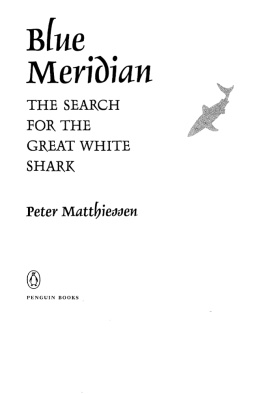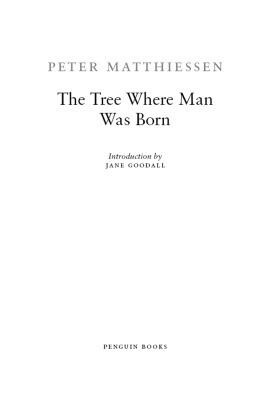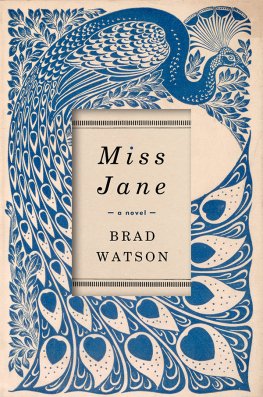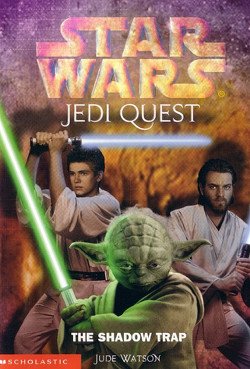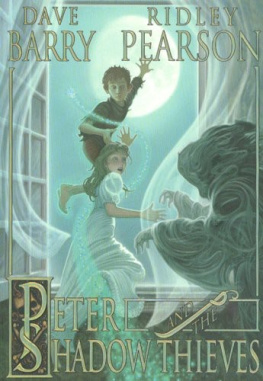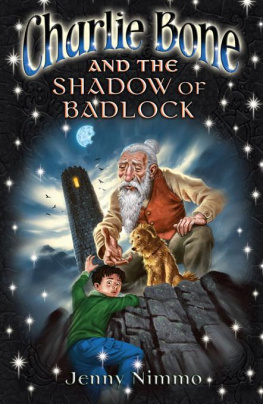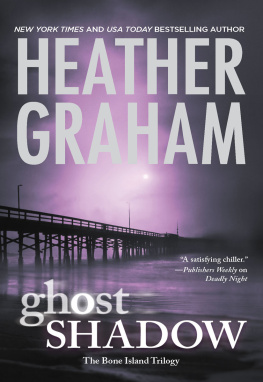
Peter Matthiessen
Shadow Country
A book in the Watson trilogy series, 2010
With love to my brother Carey
and
my ever dear Maria
Over its long history, in its various manifestations, this book has been much benefited by a number of helpful readers, beginning as ever with my kindly, keen-eyed, and mercifully candid wife, Maria, and by Neil Olson, an ever patient, thoughtful reader who is also my longtime agent. As a neighbor in the books cretaceous days when the whole was still inchoate, crude, and formless, John Irving was uncommonly generous with his time and strong clear comment. Jason Epstein, its first editor at Random House, was a strong advocate of the first of what became the so-called trilogy and so was his assistant Becky Saletan-already a fine editor when she took over the project but eventually snatched away by another publisher. Several others would preside who would also vanish elsewhere, perhaps in dismay over Watsons length; one of these was Scott Moyers, the excellent young editor at Random House instrumental in placing the present volume with the Modern Library. Subsequently, I am pleased to say, the book found its way into the sure hands of the exceptionally intelligent and insightful Judy Sternlight, its present and (I trust) ultimate editor; in recent years, it has also been blessed by the discerning eye of my gifted assistant, Laurel Berger.
For the encouragement of all of these friends in the long throes of what can only be called a thirty-year obsession I am very grateful.
Peter Matthiessen

The Watson Trilogy, as the original has been called, came into being as a single immense novel which in its first draft manuscript must have been more than 1,500 pages long. Not surprisingly, my publisher balked at the enormity of what I had wrought and so, like a loaf of bread, this elemental thing was pulled into three pieces corresponding to its distinct time frames and points of view. The first part was then cut free and finished as Killing Mister Watson (the original title for the whole), and the second and third parts were given new titles as each was completed and published-Lost Mans River (after a wild river in Watsons region of the remote southwestern Everglades) and Bone by Bone (from a beautiful strange poem by Emily Dickinson).
Although the three books were generously received, the trilogy solution never fulfilled my original idea of this books true nature. While the first book and the third stood on their own, the middle section, which had served originally as a kind of connecting tissue, yet contained much of the heart and brain of the whole organism, lacked its own armature or bony skeleton; cut away from the others, it became amorphous, reminding me not agreeably of the long belly of a dachshund, slung woefully between its upright sturdy legs. In short, the work felt unfinished and its wretched author, after twenty years of toil (the early notes, as I discovered to my horror, dated all the way back to 1978), somehow frustrated and dissatisfied. The only acceptable solution was to break it apart and re-create it, to ensure that it existed somewhere (if only in a closet) in its proper form.
In a Paris Review interview (TPR #157, Spring 1999), I confessed my intention to devote a year to its remaking, though I had no serious expectation that whatever came of it would find a respectable publisher. However, the year set aside for the re-creation of this work has grown to six or seven. This was because Mister Watson and the desperate people who shared his desperate life came alive again in the new pages and utterly reabsorbed me, and also because-in the necessary cutting and distilling that reduced the whole by almost 400 pages-their story has inevitably deepened and intensified.
In my original concept, the three books of the novel were interwoven variations in the evolution of a legend. In this new manifestation, the novels first book would be analogous to a first movement, since the whole feels symphonic in its rhythms, rising and falling, ever returning to one mans obsessive self-destruction set against the historic background of slavery and civil war, imperialism, and the rape of land and life under the banner of industrial progress. Indirectly but perhaps most importantly, it concerns the tragic racism that still darkens the integrity of a great land like a cloud shadow.
Retained as prelude more or less intact and recurring variously throughout is the myth of Watsons violent and controversial death. By design, this ending is given away at once, to get the plot out of the way of the deeper suspense of the underlying mystery. A powerful, charismatic man is shot to pieces by his neighbors-why? It is the why? that matters. How could such a frightening event take place in a peaceful community of fishermen and farmers? Was it really self-defense, as claimed by the participants, or was it a calculated lynching? How will Watsons sons deal with the killing? And the lone black man in that crowd of armed whites-what was he doing there? Set against the horror of the Jim Crow era, Henry Shorts strange story has endless reverberations. In Shadow Country, this enigmatic figure is given his own voice as an observer and also his own final accounting.
The present book draws together in one work the themes that have absorbed me all my life-the pollution of land and air and water that is inevitable in the blind obliteration of the wilderness and its wild creatures and also the injustice to the poor of our own species, especially the indigenous peoples and the inheritors of slavery left behind by the cruel hypocrisy of what those in power represent as progress and democracy.
E. J. Watson was an inspired and exceptionally able frontier entrepreneur in the greatest era of invention and advance in American history. He was also a man severely conditioned by loss, reversal, and ill fortune who became so obsessed with taking part in the new centurys prosperity that he finally descended into lawlessness, excusing his ever more reckless actions by citing as precedent the corporate ruthlessness and murderous labor practices on the railroads, in the mines, and elsewhere-cold outrages common and flagrant in turn-of-the-century America that were indulged and even encouraged by a newly imperial U.S. government.
In the third book, we have Mister Watsons own version of events, from early boyhood to the moment of his death-the final word, since surely he knows better than anyone else who he has become, this shadow cousin whom no relative will mention. The reader must be Watsons final judge.
Though the book has no message, it might be argued that the metaphor of the Watson legend represents our tragic history of unbridled enterprise and racism and the ongoing erosion of our human habitat as these affect the lives of those living too close to the bone and way out on the edge, with no voice in the economic and environmental attrition that erode the foundation of their hopes and nothing with which to confront their own irrelevance but grit and rage. The ills of our great republic as perceived through the eyes of backcountry Americans might seem inconsequential, yet people who must deal with real hardship in the pursuit of happiness, not mere neurosis, can be bitterly eloquent and darkly funny, which is why I have always enjoyed their voices and enjoyed writing about them. In the end, however outlandish such characters may seem, their stories, too, are born of the human heart-in this case, the wild heart of a shadow cousin and so-called desperado.
Next page


